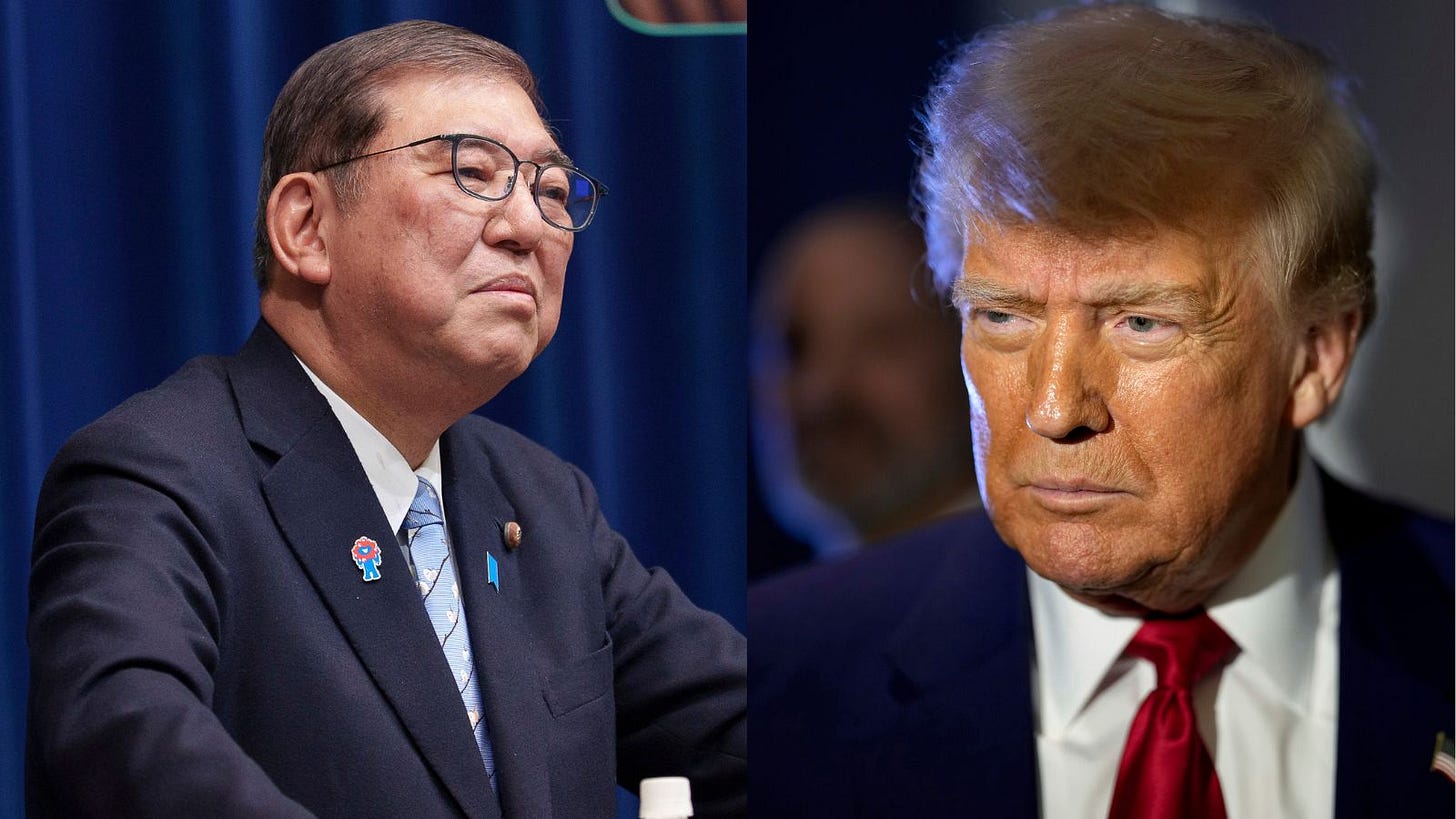The recent news that Japanese Prime Minister Shigeru Ishiba will not attend the upcoming NATO summit in The Hague marks a significant departure from the diplomatic norms set by his predecessors.
This "snub", as some have termed it, reflects a growing discord within the traditional US-Japan alliance and signals a more independent foreign policy stance from Tokyo. The shift, while potentially unsettling for some, could redefine Japan's role in the Indo-Pacific and reshape its relationship with NATO.
For years, Japanese prime ministers have consistently attended the NATO summit, demonstrating solidarity with Western allies and reinforcing the US-Japan security treaty. However, Ishiba's decision, seeded in a perceived lack of reciprocal engagement from NATO on Indo-Pacific security concerns, suggests a re-evaluation of priorities.
Instead of a blanket alignment with current US foreign policy, Ishiba appears to be advocating for a more balanced approach, one that prioritises Japans immediate regional security interests. His focus remains squarely on the escalating challenges in the Indo-Pacific, particularly China's growing assertiveness and North Korea's continued provocations. This independent streak from Ishiba could have profound implications for Japan in the region. By signaling that Japan will not automatically fall in line with US initiatives, Tokyo gains greater diplomatic leverage. It can pursue more nuanced engagements with regional partners, potentially fostering a stronger, more autonomous security architecture in the Indo-Pacific that is less dependent on Washington's directives. It is a stance that will find traction in his home electorate, especially among younger voters.
Ishiba's move might involve strengthening bilateral and multilateral ties with countries like Australia, India, and South Korea, focusing on shared regional concerns rather than solely on broader transatlantic security issues. Such an approach could enhance Japan's leadership role and encourage greater regional self-reliance in addressing security challenges.
This independent streak from Ishiba is further underscored by his measured response to recent US actions beyond the Indo-Pacific. Notably, his administration has refrained from issuing a full public condemnation of the US air strike on Iranian nuclear facilities. While previous Japanese leaders might have quickly aligned with Washington's rhetoric, Ishiba's cautious stance reflects a nuanced calculation of Japan's own energy security interests and its traditional diplomatic ties in the Middle East. This demonstrates a willingness to prioritise Japan's broader national interests, even when it means not automatically falling into line with its primary ally.
The impact on Japan's relationship with NATO is also noteworthy. While not attending the summit might be perceived as a slight, it could ultimately lead to a more equitable and focused partnership. Ishiba's stance suggests that Japan seeks concrete, actionable support for Indo-Pacific security, rather than mere symbolic participation in NATO forums. This could push NATO to genuinely consider how its strategies and resources can more effectively contribute to stability in the Indo-Pacific, rather than expecting Japan to simply extend its support to European security concerns without direct reciprocity. It could manifest in more targeted information sharing, joint exercises, or technological cooperation specifically geared towards Indo-Pacific contingencies. However, this newfound independence is not without its risks.
A perception of divergence from the US could lead to questions about the solidity of the alliance, potentially emboldening adversaries. Striking the right balance between strategic autonomy and alliance commitment will be crucial for Ishiba's administration. Ultimately, Ishiba's NATO "snub" is more than a perceived diplomatic incident, it is a recalibration of Japan's foreign policy. It reflects a growing confidence and a desire for Japan to chart its own course in a complex geopolitical landscape. This shift has the potential to forge a more resilient and self-reliant Japan in the Indo-Pacific, while simultaneously pushing its allies, including NATO, to consider a more truly reciprocal global security partnership. The world should watch closely as Japan navigates this new, more independent path as Ishiba seeks to solidify his leadership and take on issues his predecessors were not willing to take on.
#IshibaDiplomacy #JapanForeignPolicy #NATOSummit #USJapanAlliance #IndoPacificSecurity #Geopolitics #NewEraJapan #SecurityAlliance #DiplomaticShift #JapanNATO
Comments
Add a comment…
No comments, yet.
Be the first to comment.





Excellent analysis. But I suspect the real reason Ishiba stayed away was to avoid getting sucked into committing 5% of GDP on defense, which all the NATO members sans Spain have now done.